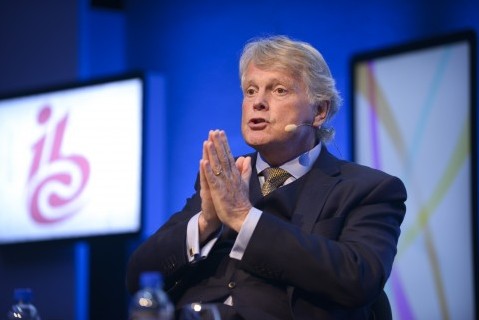
House of Cards creator Lord Michael Dobbs has fallen out with both Margaret Thatcher and the BBC but during an IBC keynote he described working with online streaming giant Netflix as a delight.
During the session, ‘Chaos and Quality: The foundations of TVs new world order’, the Tory peer admitted that he was initially blasé when he received another call from a US company wanting to remake the hit 1980s BBC TV series
House of Cards, based on his best-selling novel.
“I’d heard it all before. But then they mentioned that David Fincher and Kevin Spacey were on board – what did I think?”
Dobbs removed his name from the final BBC series, citing creative differences, and he has admitted that his previous dealings with Hollywood involved “getting chewed up and spat out” – yet he has nothing but praise for the online streaming giant.
“Netflix basically bought my house. I thought it would take over and redecorate but I was willing to sell when I heard that Spacey and Fincher were involved. I thought that would be my last contact.
“But Netflix said ‘No, this is your house. You built it, you designed it, you should be here’ and the company took me on board as executive producer and I can honestly say that it has been the happiest experience of my professional life. “
Dobbs said he is a keen proponent of “watching what you want, when you want” and discussed the issue in the House of Lords recently during a debate on the future of the BBC.
“The BBC has to change how it is going to deliver content. I watch a great deal of BBC output but this [he points to his laptop] is how I’m doing it while I’m travelling or on the train. I don’t have time to sit down at a certain time so I store it up and binge watch The Killing or The Bridge.”
A keen Nordic Noir fan, Dobbs is currently collaborating with friend Adam Price, the creator of Borgen, on another political drama. “Danish television doesn’t have vast budgets but they understand quality and the importance of good writing,” he said.
The writer, who was Margaret Thatcher’s chief of staff during the period after the 1987 election “when her world was starting to crumble”, added that the trick to writing good political drama was to “take reality and then water it down – just to make it credible”.







